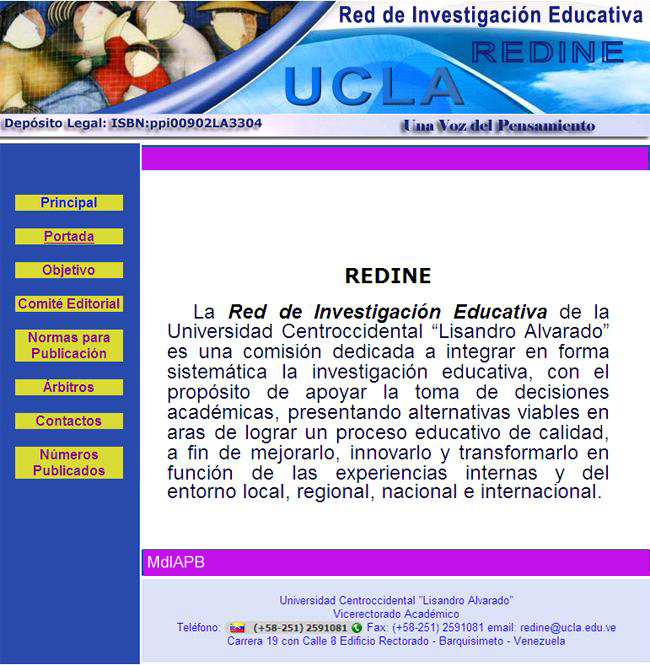communicative competence of new students of the faculty of Health Sciences, University Centroccidental Lisandro Alvarado cohort 2010-1
Keywords:
communicative competence, sociolinguistic dimension, grammatical and discursiveAbstract
Communication is an element of the culture of each group, therefore, its expression becomes the purest expression of values and norms that guide human interaction. This exploratory study has as an aim to recognize the communicative skills of 39 students participating in the course organized by the Student Support Unit Newcomer of the Dean of Health Sciences, part of the 2010-1 cohort. The information was collected through a brief opening statement made in the virtual forum provided by SEDUCLA, which was given a textual analysis. The processing of the results was conducted through analysis of frequency, percentages, and they indicate that any act of communication among two or more people in any situation of personal exchange, in this case, work online via computer, is governed more by rules of social interaction that grammatical and linguistic dominance of the speakers.
Downloads
References
Canale, M. (1995). De la competencia comunicativa a la pedagogía comunicativa del lenguaje. Madrid: Edelsa.
Berruto, G. (1979). La semántica. México: Nueva Imagen. 1979.
Girón, M., y Vallejo, M. (1992). Producción e interpretación textual. Medellín: Editorial Universidad de Antioquia.
Levinson, S. (1985). Pragmática. Cambridge: Cambridge University Press.
Mendoza F., A. (2006). Didáctica de la lengua y la Literatura. Madrid. Editorial Prentice Hall.
Published
How to Cite
Issue
Section
Copyright from the year of publication
This work is licensed under a:
Creative Commons Reconocimiento-NoComercial-CompartirIgual 4.0 Internacional (CC BY-NC-SA 4.0)
The opinions expressed by the authors do not necessarily reflect the views of the publication's editor or UCLA. Total or partial reproduction of the texts published here is authorized, provided that the complete source and the electronic address of this journal are cited. Authors have the right to use their articles for any purpose, provided it is done on a non-profit basis. Authors may publish the final approved version of their work online or in any other medium after it has been published in this journal.




